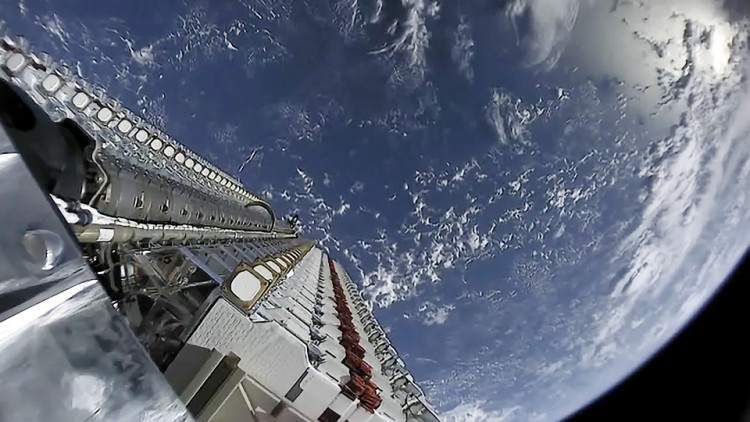A new study shows that SpaceX's Starlink satellites could be utilized for navigation and global positioning in addition to their primary role of broadband Internet.
Engineering researchers discovered a technique to use the Starlink constellation signals for navigation, comparable to the capabilities provided by global positioning satellites (GPS), which are adopted in the U.S. and a number of other countries.
Members of the team say this is the first time Starlink has been used for navigation by researchers outside of SpaceX.
Elon Musk's SpaceX sent the Starlink satellites into orbit with the goal of providing broadband internet access to remote regions around the world. The researchers pinpointed a place on Earth within 8 meters using data from six Starlink satellites.
Their findings, which were presented at the Institute of Navigation's GNSS annual meeting in St. Louis, suggest that a promising alternative to GPS may exist. Their findings will be published in the IEEE Transactions on Aerospace and Electronic Systems.
The researchers didn't require SpaceX's help to use the satellite signals, and they made it clear that they didn't have access to the actual data sent by the satellites, only information about their location and movement.
"We eavesdropped on the signal, and then we designed sophisticated algorithms to pinpoint our location, and we showed that it works with great accuracy," Zak Kassas, director of the Center for Automated Vehicles Research with Multimodal Assured Navigation (CARMEN), said.
"And even though Starlink wasn't designed for navigation purposes, we showed that it was possible to learn parts of the system well enough to use it for navigation."
CARMEN is one of four newly awarded University Transportation Centers by the U.S. Department of Transportation. Kassas is an associate professor at the University of California, Irvine, and an adjunct professor of electrical and computer engineering at Ohio State.
The researchers suggested that this method of using Starlink navigation could be used in addition to traditional GPS navigation, which has flaws. GPS is easy to use on smartphones and vehicles because it has been around for a generation (more than 30 years) and has a well-known signal - but it is also more "vulnerable to attacks," the team emphasized.
As more satellites in the fleet fly into orbit, Kassas believes Starlink's accuracy will improve using this methodology. According to the team, SpaceX currently has about 1,700 operational satellites, but the company hopes to launch more than 40,000 into orbit.






